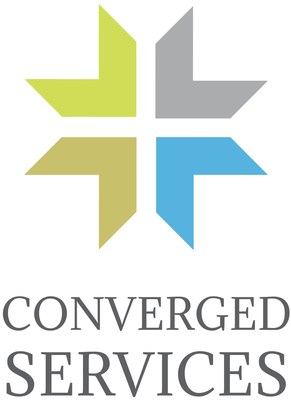TMCnet News
Converged Services' President Discusses Programs That Help Combat the Digital DivideFORT LAUDERDALE, Fla., March 18, 2020 /PRNewswire/ -- Converged Services' president, Leo Delgado, was recently featured in NAHMA's newsletter for National Affordable Housing Professionals (NAHP) Spring 2020 issue in an article titled Programs Help Residents Get Connected. Converged Services is a team of dedicated technology advisors committed to providing a solid foundation to add and integrate new technologies and services to communities and their residents. The following is reprinted with permission from NAHMA, Alexandria, VA, 703-683-8630, www.nahma.org, from NAHP Update by Jennifer Jones © Spring 2020. All rights reserved. In today's world, having a computer, laptop or some sort of smart device is no longer a luxury. It is practically a necessity for things such as doing school work, seeking employment and accessing health or social services, just to name a few. However, for people living in affordable housing it is an expense that can be low on the priority list, if it makes the list at all. According to the Pew Research Center, "On one hand, Americans—both broadband users and those who do not have broadband— are increasingly likely to view home broadband as a key tool for accessing information that is important to their lives. But at the same time, the monthly cost of broadband service is now cited by a plurality of non-adopters as the most important reason for not having a home broadband subscription …." In an effort to combat the digital divide, the Department of Housing and Urban Development (HUD) and nonprofit partners EveryoneOn and US Ignite launched a pilot program in 2015, ConnectHomeUSA, which brings together stakeholders in the corporate and nonprofit sectors to offer HUD-assisted households free or low-cost internet access, computing devices and digital litracy training. Participating companies include AT&T, Best Buy, Comcast, Cox and T-Mobile, among others. Additionally, the Federal Communication's Commission offers the Lifeline program with its partner Universal Service Administration Company that provides discounts on phone and internet to qualified low-income consumers. According to the ConnectHomeUSA Playbook, "As of 2016, 46% of families living in public housing do not have high-speed internet at home or rely solely on smartphones. These Americans are missing out on the high-value educational, economic, and social impact of the internet, and are being left behind. Kids on the wrong side of the 'homework gap' lack the tools they need to do their coursework outside of school." Recently, Leo Delgado, president of Converged Services Inc. (CSI), spoke at a conference on the digital divide. He shared the stage with a previous NAHMA Educational Foundation scholarship winner who said she used to have to take the bus to the library each day so she could do her homework because her mom could not afford internet at home. "There are millions of people that don't have access to affordable internet and can't function in society without it," he said. While CSI provides technology to multifamily housing communities and community associations, Delgado said he is passionate about letting the residents know about the discounted programs that can help them in their individual homes. "There is a thinking out there that those in affordable housing don't have the means for connectivity. That's not true, they don't have the opportunity. They want these products," Delgado said. "To be able to buy high-speed internet for $9.95 a month is a great benefit." The discount programs vary in what they offer and have eligibility requirements, but for the most part, anyone receiving HUD housing assistance can qualify. Comcast's Internet Essentials, for example, provides 15 megabits per second download/2 megabits per second upload internet speeds for $9.95 per month plus tax, which includes in-home Wi-Fi at no cost. There is also an option to purchase a discounted computer for $149 and there is access to free online and in-person training classes and limited access to Xfinity Wi-Fi hot spots outside of the home. By contrast, AT&T Access provides tiered internet speeds and pricing—ranging from $5 to $10 per month—depending on the speeds available where you live. In-home Wi-Fi and access to the AT&T Wi-Fi hot spot network are included. Delgado said it is important for management companies to make their residents aware of these discount programs. It is not just about playing games or watching movies. With internet connectivity, not only do students have the ability to do homework—at home— seniors can stay connect to loved ones, and people with disabilities can use technology to do everyday tasks. "The world we were in 10 years ago has dramatically changed," he said. AVAILABLE RESOURCES About Converged Services: Converged Services was founded in 1997 to advise and negotiate competitive telecommunications agreements. As the industry changes, Converged Services continues to focus on delivering solutions tailored to clients' needs to effectively reduce costs through smart home technology, creating operational efficiencies to simplify the lifecycle for residents and staff, and helping clients achieve the greatest competitive advantages and revenue streams. Converged Services provides local acumen in the provider and technology space with a national presence in the high-level decision making process. For more information, Converged Services visit convergedservicesinc.com.
SOURCE Converged Services, Inc. 
|

